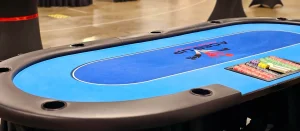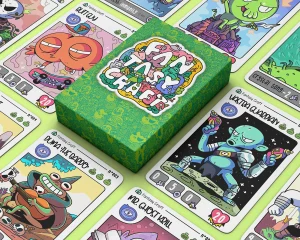How to Become a Poker Dealer
2 min read
The role of the poker dealer is to distribute cards to the players and manage the activity at the poker table. He or she is responsible for the game’s etiquette and rules. This role requires a great deal of skill and knowledge of poker. This role can be a demanding one, but it can also be fun and fulfilling.
One of the most important roles of a poker dealer is to keep the game going smoothly. This role involves keeping the pace of the game and signaling irregularities. You will be dealing with a wide variety of people, so it is important that you’re able to handle a wide variety of situations. Here are some of the skills needed to be an excellent poker dealer:
To begin a poker session, the dealer deals each player one card. The player with the highest ranking card is called the “button.” If there is a tie, the suits are used as a tiebreaker. The player with the highest ranking suit wins the button. A poker dealer will also keep track of players’ turns so that everyone is dealt their turn in a timely manner.
When dealing, the dealer will use different strategies based on the style of the game. Depending on the style of the game, the dealer must deal a certain number of cards to each player. This can vary from game to game, but the dealer must ensure all cards reach the player’s face down. To deal cards quickly and accurately, the dealer must hold the deck in one hand and pull the cards one by one from the top.
If you’re serious about becoming a poker dealer, it’s best to attend a poker dealer training course. The courses are offered online or at a local casino. The training will help you become familiar with the various roles and responsibilities of a poker dealer. The training will teach you the skills, procedures, and industry standards required to deal poker.
To become a poker dealer, you must have excellent customer service and communication skills. A poker dealer must be patient, polite, and understanding with others, and it’s essential to have good conflict resolution skills. It’s also crucial to be good with numbers as you will be constantly controlling betting rounds and adding pot sizes. In addition to these skills, a poker dealer must have good math skills. It’s also important to be well versed in poker to be able to deal with the many challenges that come with the job.
Being a poker dealer can be a fulfilling and lucrative career if you have the right skill set. As a poker dealer, you’ll deal with players and handle bets, collect money from non-winners, and report any disputes or irregularities in the games. Poker dealers typically report to a supervisor and work under close supervision.






